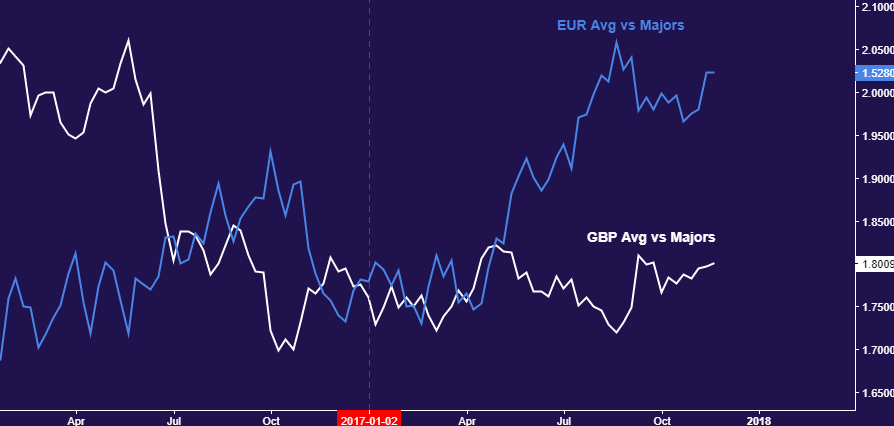The Euro has enjoyed an undeniably stellar 2017…
With barely over a month left to go in 2017, it feels safe to say that the past year has been decidedly rosy for the Euro. That seemed improbable on January 1, when the currency was plagued by fears of eurosceptic triumph in several pivotal elections. Still smarting after the outcomes of the Brexit referendum and the US presidential election, shell-shocked investors braced for the worst.
Reality proved to be far kinder. The status quo prevailed in the Netherlands, France elected a youthful and energetic centrist in Emmanuel Macron, Italy managed the abrupt transition from the Renzi to the Gentolini administration, and Spain muddled through a separatist flare-up in Catalonia. This coupled with an upshift in the pace of economic growth handed the single currency a gain of close to 12 percent on the year.
…but trouble may be brewing on horizon
A sense of danger has suddenly emerged however, as Germany – heretofore the bastion of stability within a shaky region – became the site of the latest political upheaval. Coalition talks aimed at securing another term for Chancellor Angela Merkel broke down, and now another election may be necessary. A speedy resolution may yet materialize, but the common unit suddenly appears vulnerable again.
The ECB is unlikely to be much help either. It has already set the near-term fate of QE asset purchases and probably won’t alter that stance at least through March as progress is evaluated. Meaningful tightening thereafter is also unlikely as recent Euro gains filter into on-year CPI calculations, slowing progress toward the inflation target. This hints that the path of least resistance may soon favor Euro weakness.

Pound stuck in limbo amid conflicting political, economic forces
Meanwhile, the British Pound’s performance can be aptly described as “directionless drift”. After eleven months of seesaw volatility, the currency is a mere 2 percent away from where the year began. This makes some sense. With 16 months in the history books since the Brexit referendum, EU and UK negotiators seem to be no closer to a framework for discussion, never mind the outlines of an accord.

















Leave A Comment